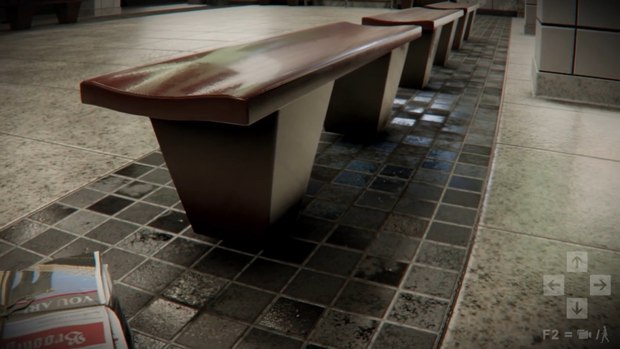Built on the Bitsquid engine, Stingray is a new platform for making 3D games with support for a host of industry-standard game development workflows and connectivity to Autodesk 3D animation tools.
COLOGNE, Germany -- At the Game Developers Conference (GDC) Europe 2015, Autodesk announced that its new Stingray game engine will be available to game developers worldwide beginning August 19, 2015. Later this summer, Autodesk will also offer Autodesk Maya LT Desktop Subscription customers access to Autodesk Stingray as part of their subscription.
Built on the powerful, data-driven architecture of the Bitsquid engine, which Autodesk acquired in 2014, Stingray is a comprehensive new platform for making 3D games. The engine supports a host of industry-standard game development workflows and includes powerful connectivity to Autodesk 3D animation software that simplifies game development across a wide range of platforms.
“Between Augmented Reality, Virtual Reality and the proliferation of mobile platforms, the games industry is undergoing a major transition, which poses new complexities for both AAA and indie game developers. Autodesk developed Stingray with these challenges in mind, and we’re excited to share its debut with the game developer community,” said Autodesk senior vice president, Media & Entertainment, Chris Bradshaw. “Stingray makes it easy and intuitive for artists with varying skill sets and programming expertise to create the next generation of 3D blockbuster games, entertainment and even architecture.”
Stingray feature highlights include:
- Seamless Art-to-Engine Workflow: Import, create, iterate, test and review 3D assets and gameplay faster with a one-click workflow and live link between Stingray and Autodesk 3D animation software.
- Modern Data-Driven Architecture: A lightweight code base gives game developers the freedom to make significant changes to the engine and renderer without requiring source code access.
- Advanced Visuals and Rendering: Produce visually stunning games with a powerful rendering pipeline, physically-based shading, advanced particle effects, post processed visual effects, lightmap baking and a high-performance reflection system.
- Proven Creative Toolset: Stingray includes proven solutions like Beast, HumanIK, Navigation, Scaleform Studio (UI technology built on Scaleform), FBX, Audiokinetic Wwise and NVIDIA PhysX.
- Versatile Game Logic Creation: Stingray includes a wide range of development tools making game creation more accessible for game makers with varying levels of experience - including visual node-based-scripting and Lua scripting. C++ source code will also be available as an additional purchase upon request.
- Multiplatform Deployment and Testing: Quickly make and apply changes to gameplay and visuals across supported platforms: Apple iOS, Google Android, Microsoft Windows 7 and Windows 8, Oculus Rift DevKit 2, Sony PlayStation 4 and Microsoft XboxOne.
Autodesk previewed Stingray at GDC 2015 earlier this year in San Francisco. Since then, game developers around the world have signed up for Autodesk’s beta program, shipped games using this technology and provided feedback including:
“Stingray’s data-driven architecture and flexibility have helped us build a broad portfolio of games, and quick iteration times for both code and content creators has boosted our productivity significantly,” shared Fatshark CEO Martin Wahlund. “The engine has been a key success factor for us because we’re able to produce high quality games in a shortened timeframe. We’re excited to see how Autodesk will continue to evolve the engine.”
“We never know what kind of games we're going to create, and the engine is good for that,” explained Arrowhead Game Studios CEO Johan Pilestedt. “It really allows us to just make anything. We can make an FPS or an RTS, or a top-down shooter, or a role-playing game, or whatever. It's not tied to a specific genre.”
The Stingray engine can also be used in design environments and is an informative next step to further understand design data before anything is physically built. The engine’s real-time digital environment, on a powerful, data-driven architecture, is programmed to look and feel like the physical world. Through the high-end development tools and visual scripting system, customers can program objects, light effects, environmental elements, materials, and entourage elements to behave and react as they would in the physical world.
Connected to Autodesk 3ds Max, architecture, engineering and construction customers can import Autodesk Revit data into 3ds Max, add content to the 3ds Max scene and then place that scene in the Stingray engine to explore, animate, and interact in the designed space.
Autodesk Stingray runs on Windows and will be available via Autodesk Subscription starting August 19, 2015 for $30 US MSRP per month. Later this summer, Autodesk plans to offer Maya LT Desktop Subscription customers access to the engine as part of Maya LT.



















